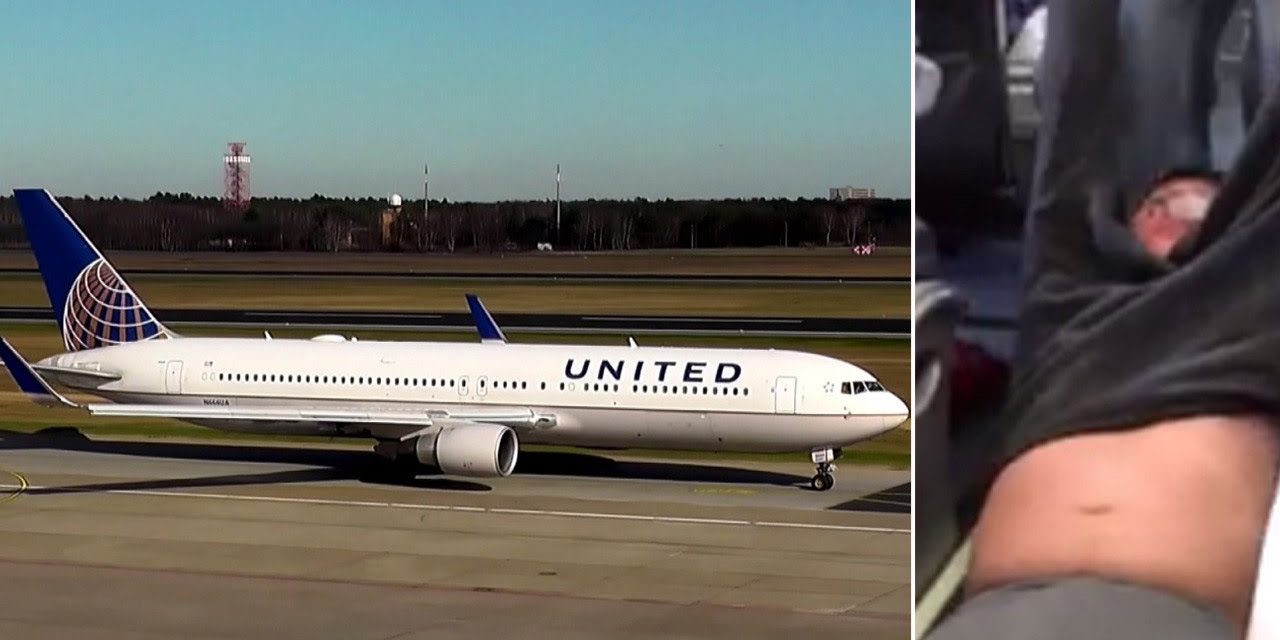As the founder of Travel Therapy, that’s all about inspiring and empowering people through travel, I often contribute as a “Travel Expert” on top television news and entertainment outlets, giving travel tips to help people have their best travel experiences.
Lately, with tensions at an all time high between airlines and their passengers, I’ve been kept extremely busy offering my Travel Therapy advice and assistance whenever I can.
To get ready for my TV segment with Inside Edition, about a very disturbing video of a United Airlines passenger, injured and dragged off the plane after refusing to give up his seat on an overbooked flight, I started researching to find out exactly what rights passengers have in an overbooked situation.
Keep in mind that each airline has it’s own set of rules, but all U.S. airlines must follow the federal guidelines of the Department of Transportation. So knowing the DOT’s rules is a good place to start.
TOP 10 Federal Rules to Know if You’re Involuntarily Bumped From Your Flight
- You always get to keep your original ticket and use it on another flight. If you choose to make your own arrangements, you can request an “involuntary refund” for the ticket for the flight you were bumped from. The denied boarding compensation is essentially a payment for your inconvenience.
- If your ticket does not show a fare (for example, a frequent-flyer award ticket or a ticket issued by a consolidator), your denied boarding compensation is based on the lowest cash, check or credit card payment charged for a ticket in the same class of service (e.g., coach, first class) on that flight.
- If the substitute transportation is scheduled to get you to your destination more than two hours later (four hours internationally), or if the airline does not make any substitute travel arrangements for you, the compensation doubles (400% of your one-way fare, $1350 maximum).
- If the airline arranges substitute transportation that is scheduled to arrive at your destination between one and two hours after your original arrival time (between one and four hours on international flights), the airline must pay you an amount equal to 200% of your one-way fare to your final destination that day, with a $675 maximum.
- If you are bumped involuntarily and the airline arranges substitute transportation to your final destination within one hour of your original scheduled arrival time, there is no compensation.
- Travelers who don’t get to fly are frequently entitled to denied boarding compensation in the form of a check or cash. The amount depends on the price of their ticket and the length of the delay. Important to note: The DOT rules say if you are bumped involuntarily you have the right to insist on a check, instead of a travel voucher, if that is your preference. Once you cash the check you will probably lose the ability to pursue more money from the airline later on. However, if being bumped costs you more money than the airline will pay you at the airport, you can try to negotiate a higher settlement with their complaint department. If this doesn’t work, you usually have 30 days from the date on the check to decide if you want to accept the amount of the check. You are always free to decline the check (e.g., not cash it) and take the airline to court to try to obtain more compensation. DOT’s denied boarding regulation spells out the airlines’ minimum obligation to people they bump involuntarily.
- DOT requires each airline to give all passengers who are bumped involuntarily a written statement describing their rights and explaining how the carrier decides who gets on an oversold flight and who doesn’t
- If you paid for optional services on your original flight (e.g., seat selection, checked baggage) and you did not receive those services on your substitute flight or were required to pay a second time, the airline that bumped you must refund those payments to you.
However, like all rules, the DOT says there are a few conditions and exceptions:
- To be eligible for compensation, you must have a confirmed reservation.
- Each airline has a check-in deadline, which is the amount of time before scheduled departure that you must present yourself to the airline at the airport. If you miss the check-in deadline, you may have lost your reservation and your right to compensation if the flight is oversold.
Also, the DOT says, the rules do not apply to charter flights, or to scheduled flights operated with planes that hold fewer than 30 passengers. They don’t apply to international flights inbound to the United States. Also, if you are flying between two foreign cities — from Paris to Rome, for example — these rules will not apply. The European Commission has a rule on bumpings that occur in an EC country; ask the airline for details.
Airlines set their own “boarding priorities” — the order in which they will bump different categories of passengers in an oversale situation.
As you can see there’s a lot of information here but I always believe knowledge is power.
For example, here’s a very useful Travel Therapy tip, the DOT says the best way to reduce your risk of being bumped is to get to the airport early. For passengers in the same fare class the last passengers to check in are usually the first to be bumped, even if they have met the check-in deadline.
Hopefully, you will never have to experience being involuntarily bumped from a flight, but if you are, now you know your rights.
For more detailed information from the DOT you can access the website HERE. The DOT also has a lot of other very useful information for travelers. I would definitely spend some time on the DOT website, learning as much as you can.
Until next time, safe travels…



